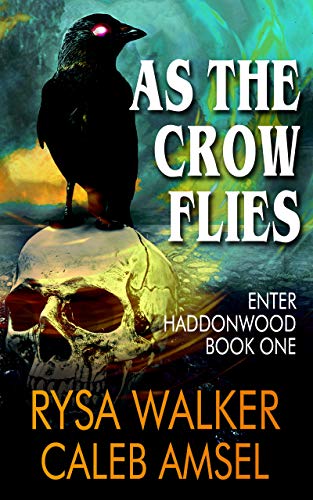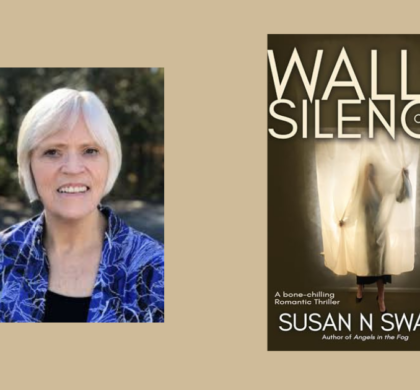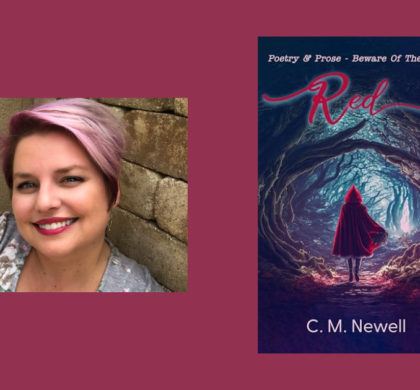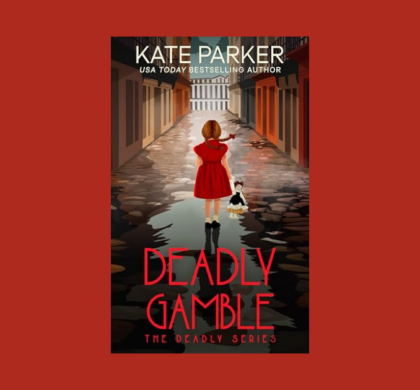Interview with Rysa Walker & Caleb Amsel, Authors of As the Crow Flies
31 Dec 2019
What can you tell us about your new release, As the Crow Flies?
Rysa: As the Crow Flies is the first book in the Enter Haddonwood trilogy, and my first co-authored book. As with my previous series, it sits at the nexus of several genres–mystery, thriller, horror, and even a touch of science fiction. Caleb and I are both huge fans of supernatural and psychological thrillers, and one of the things I enjoyed most about writing this novel was weaving in the various “Easter eggs” in tribute to our favorite scary movies and books.
Caleb: As the Crow Flies is basically a love letter to the house that built me. I’ve always loved horror, mysteries, thrillers, tales of the supernatural, and I knew I had to do something that encompassed as much of that as I could. A small town, an even smaller group of characters that start to realize that something isn’t quite right and yet no one else in Haddonwood seems to notice anything. Why?
What or who inspired you to become an author?
Caleb: I grew up reading authors like Shirley Jackson, Stephen King, Lois Duncan, and Mary Higgins Clark. I loved the way each author took me somewhere different, scared me, made me laugh, and made me forget what was going on in my own life. Stories are truly a gift and I’ve wanted to be part of that since I can remember. Telling stories, to me, is probably the most fun a person can have. Every day isn’t perfect but it’s always worth it.
Rysa: I can’t remember a time when I didn’t want to be a writer. I was banging out short stories on my grandmother’s old manual typewriter when I was in kindergarten. For many years, I told myself that writing fiction wasn’t a practical use of my time, and I focused on an academic career, teaching and writing journal articles. As much as I loved teaching, however, it didn’t satisfy my desire to do something creative. At Christmas about ten years ago, I started thinking back to when I was twenty and someone very dear to me who is now gone gave me a copy of the Writer’s Market, back when it was still only available in print format. He believed in me back then, and I decided it was time to start believing in myself. I finished Timebound later that year, and thanks to a stroke of incredible good fortune, was able to begin writing full-time about nine months later.
What’s on your top 5 list for the best books you’ve ever read?
Rysa: These are in no particular order and could easily be different tomorrow.
• Stephen King’s The Stand, although as Caleb notes below, many of King’s books would be in the running.
• Kindred, by Octavia Butler.
• The Princess Bride, by William Golden.
• Watership Down, by Richard Adams.
• To Kill a Mockingbird, by Harper Lee.
If we included short stories, Shirley Jackson’s “The Lottery” and Ray Bradbury’s “I Sing the Body Electric” would definitely make the list as well.
Caleb: I had to think about this one for a minute. There are so many I love for a multitude of different reasons. Wuthering Heights by Emily Bronte, The Little Friend from Donna Tartt, The Gargoyle by the brilliant Andrew Davidson, ANYTHING by Stephen King, and We Have Always Lived in the Castle by Shirley Jackson.
Say you’re the host of a literary talk show. Who would be your first guest? What would you want to ask?
Caleb: I would definitely want to talk to Shirley Jackson. She was the master of tension, sudden understated violence, and overall dread that something really terrible could happen at any moment in the most ordinary of places. That’s what I would want to talk to her about. How do you convey so many feelings and emotions only to pull the rug out from underneath the reader when they least expect it? I suppose I would take that opportunity to simply thank her as well. Knowing me, I would probably be so star struck that I wouldn’t be able to say much of anything.
Rysa: Caleb and I need to host our show together. Shirley Jackson would definitely be at the top of my list, especially given the social pressure that she endured after publishing “The Lottery,” which was too dark (and far too honest) for many people.
But I’d also love to interview Mary Shelley. Her novel Frankenstein was the genesis of one of my favorite genres, science fiction, and also has elements of mystery and gothic horror. I’d love to ask her not just about that book, but about the ways in which politics and society shaped her life and her work, and how that was affected by being the daughter of Mary Wollstonecraft, who is generally considered the first feminist philosopher.
What’s your favorite thing about writing?
Rysa: The moment when all of the random threads come together in my mind and begin to form a tapestry. I am not a writer who plots things out. I start with characters and a vague sense of the general direction in which the plot will go. (This made collaboration very interesting, as Caleb can attest!) A lot of the creative process happens in my subconscious and that moment when everything dovetails, usually during the mad dash to finish by my publisher’s deadline, is exhilarating and the very best kind of magic.
Caleb: The ability to spend hours a day sitting in one place but being somewhere else completely different. Figuratively, when you’re writing, you can go anywhere you want and even though it might not fit into the overall narrative of the novel, that’s what the delete key is for. Sometimes you have to take the long way around to get to where you need to be but that’s all part of the fun. It’s like putting a huge puzzle together.
What is a typical day like for you?
Caleb: A typical writing day for me usually starts fairly early. I work better in the morning, so I try to wake up around five or five-thirty. Copious amounts of coffee are involved. I usually start with my notebook, writing huge chunks in longhand. A lot of times I’ll leave the house, get in my car and head to a park or overlook. Most people don’t know this, but Crow was about 90% written in a little red notebook on the property of an old mental hospital in Raleigh that they turned into a park. It’s beautiful there and I would sit for hours, drink coffee, and just write. Later in the evening, usually after dinner, I’ll go back and type up what I captured in the notebook. A lot of my friends can’t believe I write so much in longhand, but it seems less daunting to me than just sitting in front of a plain white computer screen. Less pressure, I think.
Rysa: Caleb and I are mirror opposites in terms of our preferred schedule. My brain does not function in the morning and I tend toward insomnia. Now that my kids are older and fairly self-sufficient, I’ve shifted to being mostly nocturnal. There were several instances during our collaboration when Caleb and I were messaging just after he woke up, which was just before I was headed off to bed. Generally speaking, I do admin chores like editing and answering emails during the afternoon and early evening, and then start writing around eleven p.m.. I usually take a break around two or three, and then dive back in until I’m tired enough to sleep. Sometimes that’s six in the morning, sometimes it’s much later.
What scene in As the Crow Flies was your favorite to write?
Rysa: The scene in the projection booth as Daisy, Chase, and Tucker are watching all hell breaking loose in the theater below them is probably my favorite. Tucker and Daisy’s scenes were always fun, especially the ones in which they were together. As soon as I wrap up my current project, I’m looking forward to diving back into the second Enter Haddonwood book, When the Cat’s Away, to see where their story goes.
Caleb: Oh, no! There were so many! If I had to pick *just* one… I’d say the scene where Ben and Marybeth go to the Grimshaw house with their Halloween offering. That scene went through so many changes, but my favorite parts remained. The last of it was the most fun. I remember finishing it and just sitting there smiling from ear to ear for a good five or ten minutes. I couldn’t wait for people to read it.
Do you have a motto, quote or philosophy you live by?
Rysa: “Loyalty to petrified opinion never yet broke a chain or freed a human soul.” ~ Mark Twain.
Caleb: “In every day, there are 1,440 minutes. That means we have 1,440 daily opportunities to make a positive impact.” – Les Brown
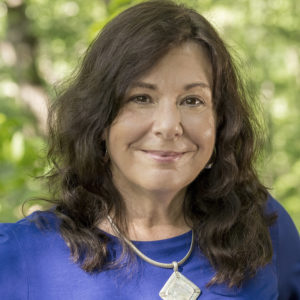
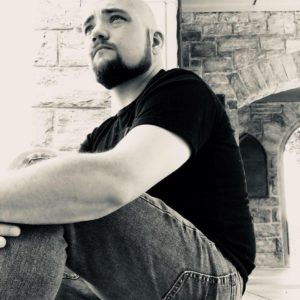
Rysa Walker and Caleb Amsel are the authors of the new book As the Crow Flies.
Connect with Rysa
Author Website
Facebook
Connect with Caleb
Author Page
Facebook
Buy The Book
Sign up for our email and we’ll send you the best new books in your favorite genres weekly.
